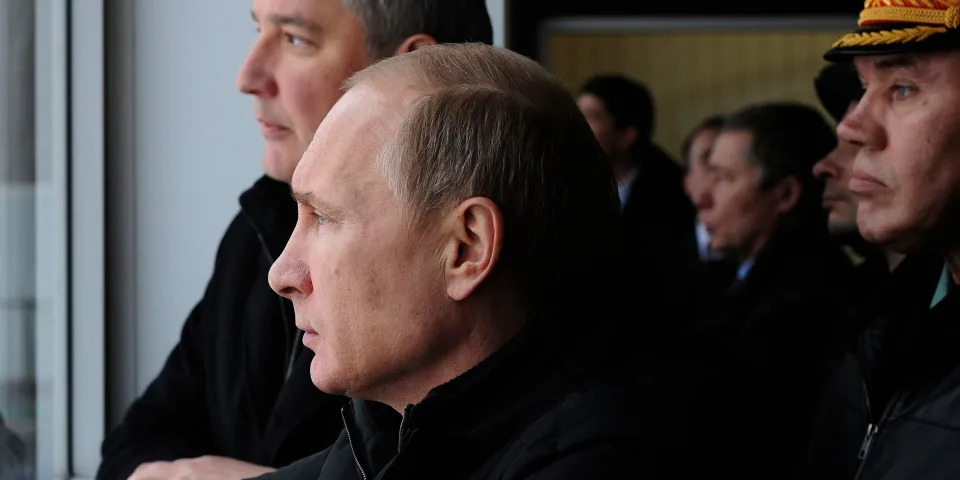The country's energy revenues tumbled 45% year over year to $19.6 billion as crude prices declined and gas exports sank ...
Russia's oil and gas revenue tumbled by 45% in the first three months of 2023 amid sanctions.
Meanwhile, the ruble is coming off its worst week against the dollar in a year.
A recent paper said Russia's recession in 2022 was actually twice as bad as official data implied.
As Moscow navigates its second year of its war on Ukraine, the Russian economy continues to stumble with plunging oil and gas export revenues and a weakening currency.
Through the first quarter of 2023, the country's energy revenues tumbled 45% year over year to $19.6 billion as crude prices declined and gas exports sank.
Russia is still shipping out crude and fuel products, but the data suggest the price cap imposed by the US and its allies is having the intended dual-effect of curtailing revenue while keeping products flowing through the market.
Experts previously forecasted that sanctions targeting Russian energy wouldn't spur serious repercussions in overall production volume. Other nations including China and India could still buoy demand, analysts said, and Russian supplies could find a way bypass restrictions and still end up in Europe.
Yet the nation's seaborne exports collapsed in the first week of April, with Bloomberg data showing flows from Russian ports dropped by 1.24 million barrels a day — the steepest weekly decline since mid-December.
Alongside the drop in energy revenue, spending surged 34% to $99 billion as the costs to wage war on Ukraine pile up. That led to a $29 billion first-quarter budget deficit, reversing sharply from a year-ago surplus of $14 billion.
Meanwhile, the ruble is coming off its worst week against the dollar since April 2022, falling more than 5% by Friday.
The deterioration at the start of 2023 follows indications that Russia's recession in 2022 was much worse than official data showed.
Stripping away military spending from GDP figures, the country saw a downturn twice as bad as domestic figures imply, wrote Adrian Schmith and Hanna Sakhno a paper for the Centre for Economic Policy and Research in February.
"[The data] currently points to a further loss of momentum driven by stagnating real estate prices and lower business activity in recent months, which is not yet fully reflected in the official data releases," the authors wrote.
That adds to bleak views about the Russian economy as war and sanctions weigh on its long-term prospects.
Economist Konstantin Sonin said Russia faces the same fate of the Soviet Union.
"Everything that is happening makes the Russian economy more primitive, more backwards," he told Russian news outlet Novaya Gazeta. "This makes backwardness and primitivism more persistent."
Read the original article on Business Insider
https://finance.yahoo.com/news/russias-economy-continues-reel-energy-211945356.html


